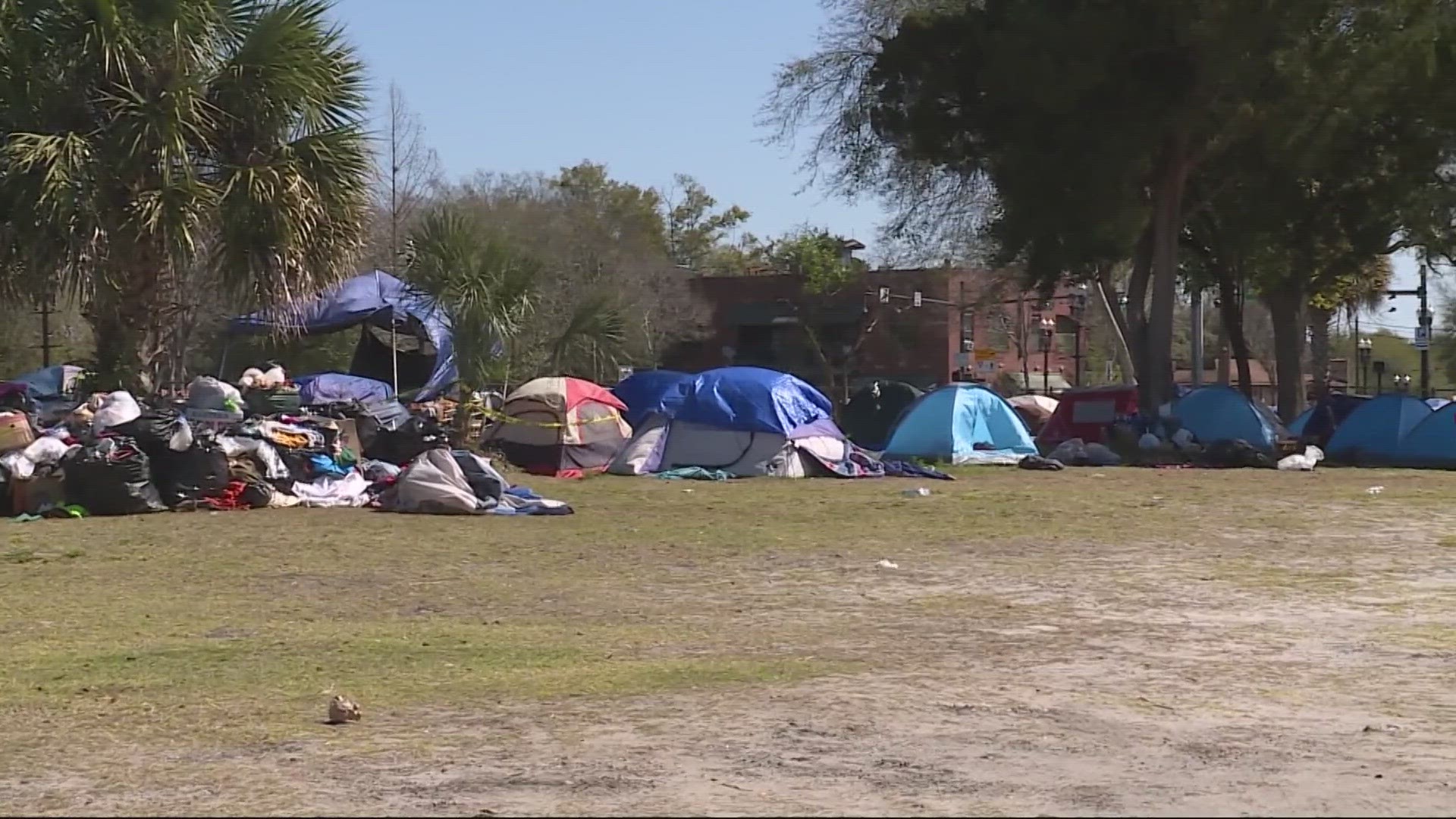JACKSONVILLE, Fla. — The face of homelessness is changing. Research shows the number of people 65 and older experiencing homelessness will triple by 2030.
Homelessness is a scary situation for anyone to imagine, but the age group of 55 plus, baby boomers, have additional concerns. Some have health or mobility problems emergency shelters aren't equipped to handle. And they occupy two of the riskiest categories for heat related illness, being older and unhoused.
"It's very concerning," Dawn Gilman, Changing Homelessness CEO said. “If you go into the parts of our community where there are visibly pockets of people who are living on the streets you will notice older faces. You will notice older people that have mobility issues.”
Preliminary results from a recent survey of the homeless population in Duval, Nassau and Clay Counties conducted by Changing Homelessness shows the number of people 55 and older increased by six percent in just six months. Growing from 25% in January to 31% in July.
First Coast News took our cameras inside of Jim Paris' Honda where he lived for 2.5 years. He was a part of the boomer generation, a group quickly becoming the largest portion of our nation's homeless population.
"I'm glad I have the car but every time I get in, it brings me back there and ah, it's not good,” Paris said. “I would use the restroom facilities at the park which of course didn't have any showers, but I was able to clean up and wash up in the sinks and use the restroom facilities."
Paris once owned his own company, “I worked in access control," he said.
The father of one tells FCN life’s twists and turns lead to him working at a convenience store not making quite enough money to get by.
"I didn't have enough money to put a down payment on an apartment and I resorted to living on the streets," Paris said. "I used to see homeless people and say 'good God I could never be there.' But you know it wouldn't take much to make it happen. And then it happened."
With limited mobility while living in his car, physical and mental health problems crept in. Paris ended up in the hospital. It was there he met a case worker with Changing Homelessness. He says she changed his life.
“I’m beginning to regain my health and I’m moving forward,” Paris said.
The agency helped him gain access to resources to get him into his own apartment where he’s lived since January.
"This is a solvable problem," Gilman said.
She’s working with the new administration at city hall to prioritize funding to address the issue.
“We're looking at different ways to really focus resources to be able to quickly identify folks in a housing crisis or are literally homeless who are 55 and older and then where is the best place for them to go so they have a home,” Gilman said.
Some seniors on the First Coast are living on the edge of poverty. Many can't afford to pay rising rent costs. Gilman explains most seniors are on a fixed income and while housing prices may go up their incomes will remain the same. If you are in that predicament Gilman suggests talking to your landlord about what you can afford. She says you must advocate for yourself.
Changing Homelessness partners with 40 agencies on the First Coast that help the homeless population. If you know someone in need of help they can email outreach@changinghomelessness.org
FCN is On Your Side speaking with the experts about preparing for retirement. Financial consultant, Nathaniel Herring is a partner with the non-profit Wealth Watchers. He says as you approach retirement age contact the social security administration to figure out your eligibility and get an estimate of your social security payment. And take full advantage of savings plans like IRAs, 401Ks and TSAs.
Wealth Watchers Inc. is a nonprofit Housing Counseling and Community Development Organization based in Jacksonville with services available in Florida and Georgia.

